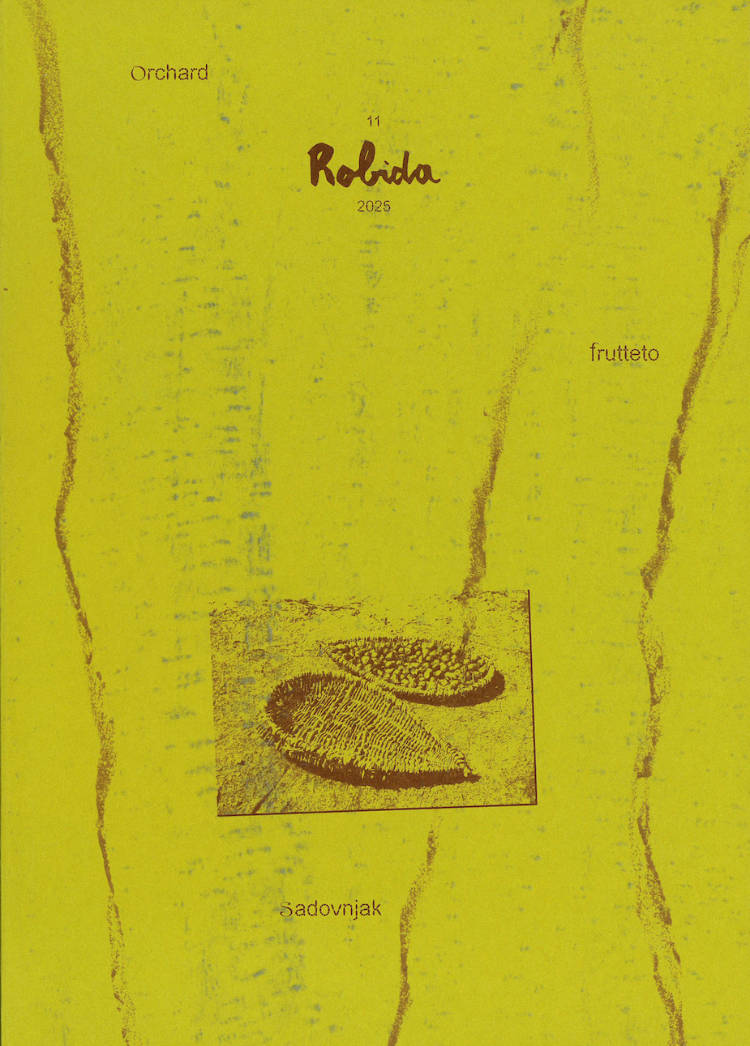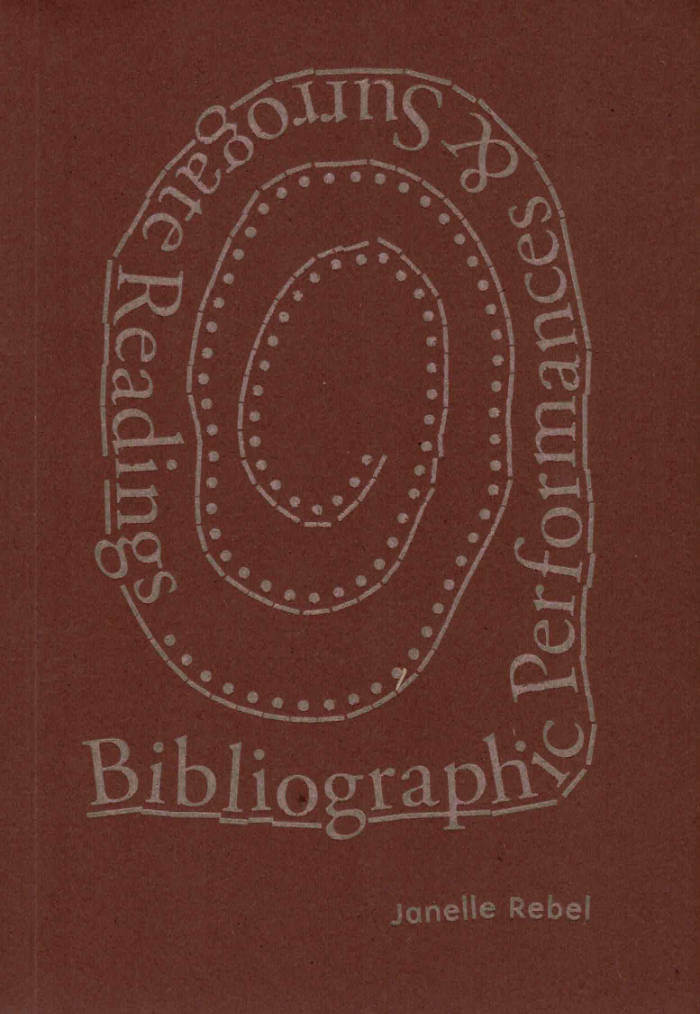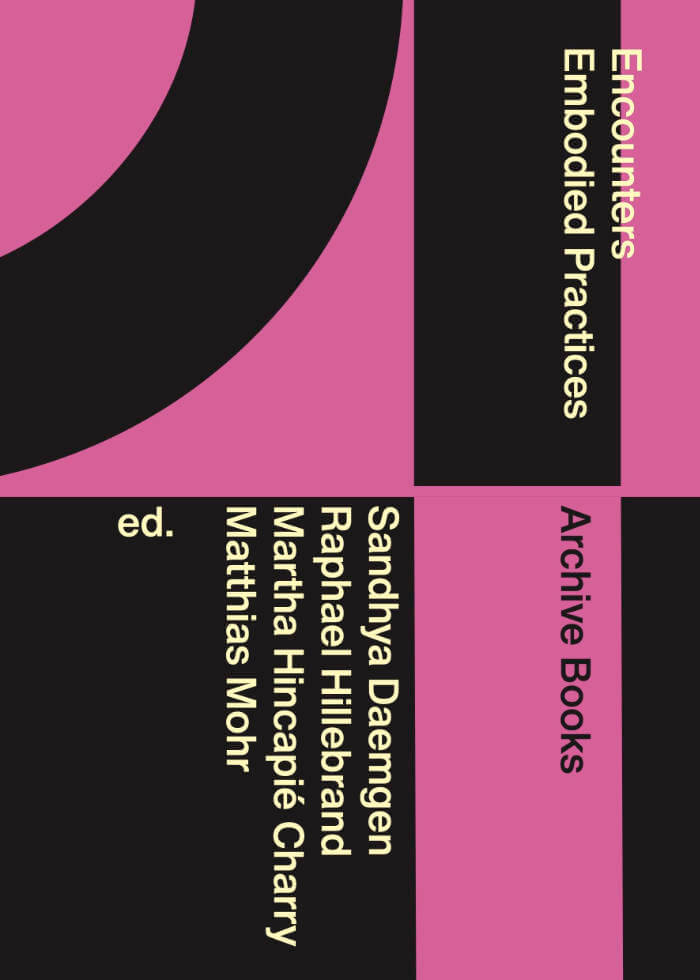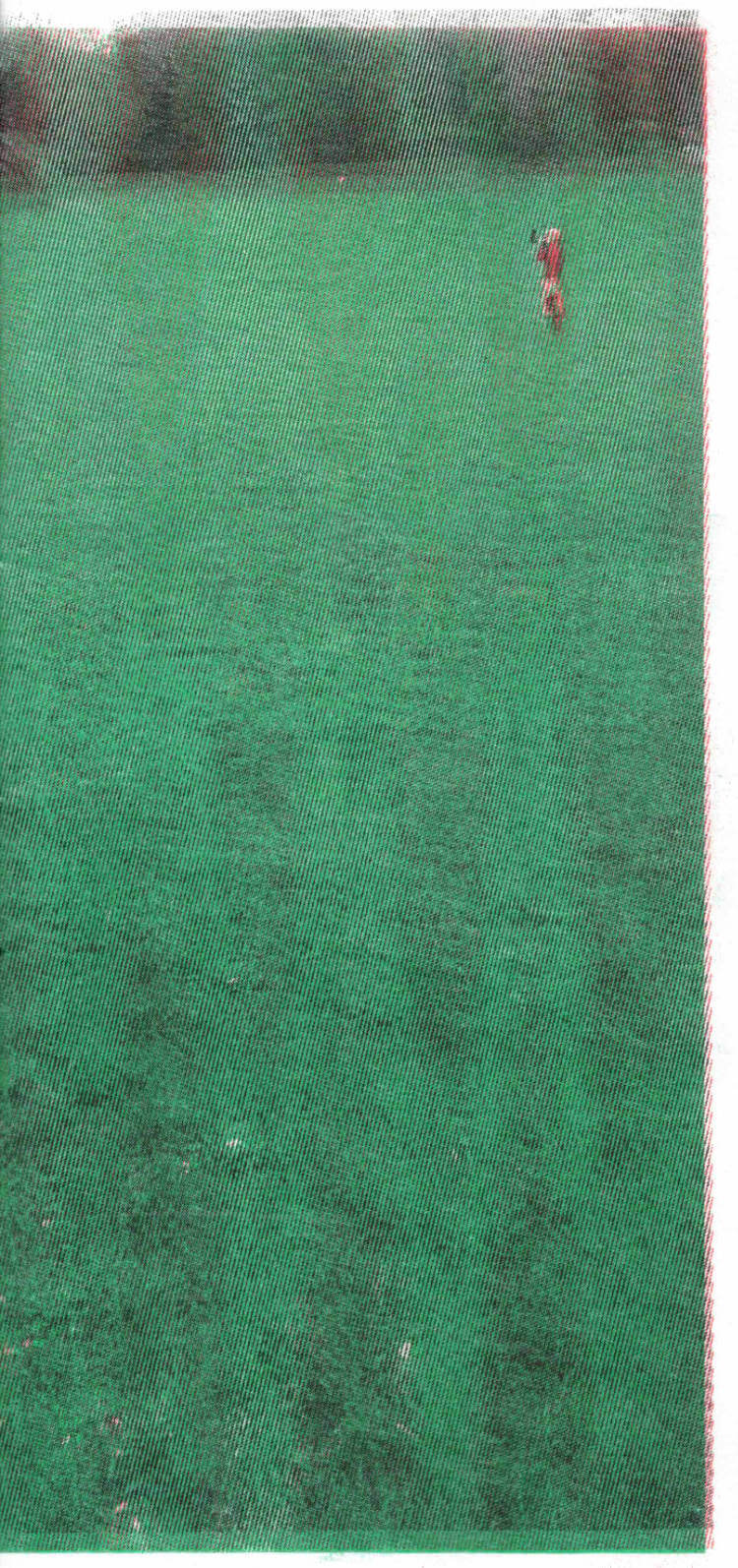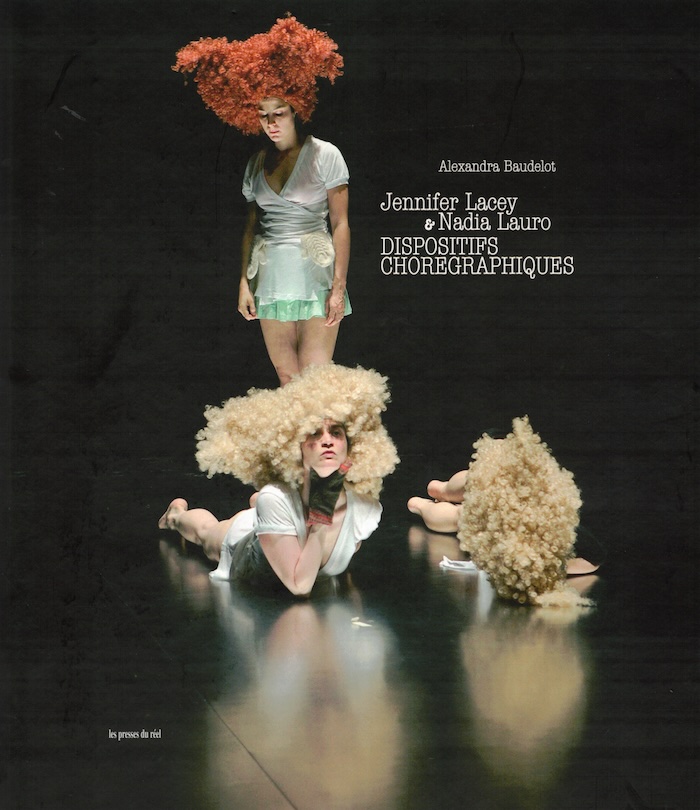
Robida 10: Correspondences
Robida ed.
Robida is a situated, multilingual cultural magazine published by Robida collective. Each issue explores a topic connected and generated by Topolò/Topolove, the village on the border between Italy and Slovenia where the collective is based.
The chosen topic is thrown into the world and interpreted by people who have never been to Topolò. What people send back after the open call is not only a contribution to the exploration of a defined theme but also a new interpretational tool to explore the collective’s relation to Topolò.
The tenth issue of Robida magazine, which celebrated its tenth year of existence, is made of correspondences, conversations, interviews and letter exchanges where the magazine becomes the pretext to establish new relationships or deepen existing ones. While writing and other creative activities can often be solitary endeavours, this year, Robida’s core purpose was decidedly tangible and hands-on: to go out there and talk, discuss, meet, write to each other, organise and create — together.
The issue contains correspondences about, among other things, fire, bread, dreams, wild tongues, public space, local architecture, community gardens, reading practices, sky, bees, postcards, type design, resistance, be-longings, regenerative agriculture, coding, radical equality and more.
〰️
CONTRIBUTORS
Adele Dipasquale ↔︎ Madison Bycroft, Alice Alloggio ↔︎ Alia Mascia, Antônio Frederico Lasalvia ↔︎ Cécile Malaspina, Anya Jasbar ↔︎ Chris Rocchegiani
Caterina Santullo ↔︎ Neva Zidić, Lukas Horn, Chiara Pavolucci ↔︎ Enrico Malatesta, Else/Xun ↔︎ Ahed Al Kathiri, Emma Verhoeven, Erika Mayr ↔︎ Aljaž Škrlep, Erin Honeycutt ↔︎ Priyam Goswami Choudhury, Tara Habibzadeh, Eva Garibaldi ↔︎ Eva Bevec, Gaja Pegan-Nahtigal, Ana Laura Richter, Lea Topolovec, Francesca Lucchitta ↔︎ Teo Giovanni Poggi
Garance Maurer ↔︎ Elise Boutié, Tonì Casalonga, Alice Cuenot, Daniel Parnitzke, Club de Bridge, Alona Rodeh, Giorgia Maurovich, Giulia Soldati ↔︎ Eline Ex, Suzanne Bernhardt, Agnese Podgornik, Salvatore Ceccarelli, Alysha Aggarwal, Ingeborg van Houwelingen, Sara Vande Velde, Sasha van Aalst, Greta Biondi ↔︎ Vittoria Rubini, Hannah Segerkrantz ↔︎ Mia Tamme
How Melnyczuk, Janja Šušnjar ↔︎ Marjetica Potrč, Karin K. Bühler ↔︎ Raimundas Malašauskas, Kim Kleinert ↔︎ Polina Lobanova, Kirsten Spruit ↔︎ Benjamin Earl, Lalie Thébault Maviel, Laura Cull Ó Maoilearca ↔︎ Rajni Shah, Linsey Rendell ↔︎ Gemma Copeland, LinYee Yuan, Madeleine Reinhart ↔︎ Greta Veresani, Michael Minnis ↔︎ Áine Nic Giolla Coda, Nai-Syuan Ye ↔︎ Merle Findhammer, Nolwenn Vuillier, Ola Korbańska, Ola Lewczyk, Paula König ↔︎ Aida Fernandes, Rachele Daminelli, Rita Gaspar ↔︎ Shams, Rossella Famiglietti ↔︎ Rocco Pisilli, Giuseppe Defilippis, Daniele Pirozzi, Alessandro Bosco, Sarah Marlene Sammito ↔︎ Rūta Žemčugovaitė, Leonardo Sammito, Soph Boobyer ↔︎ Annie Box, Sophie Mak-Schram ↔︎ Katherine Marie Agard, Esyllt Angharad Lewis, Vida Rucli, Alejandra Santillana Ortiz, Jeanne van Heeswijk, Tadej Urh ↔︎ Eva Bevec, Teresa Frausin ↔︎ Anne Kaivo-oja, Vida Rucli ↔︎ Donatella Ruttar, Yiannis I. Andronikidis ↔︎ Mojca Radkovič
